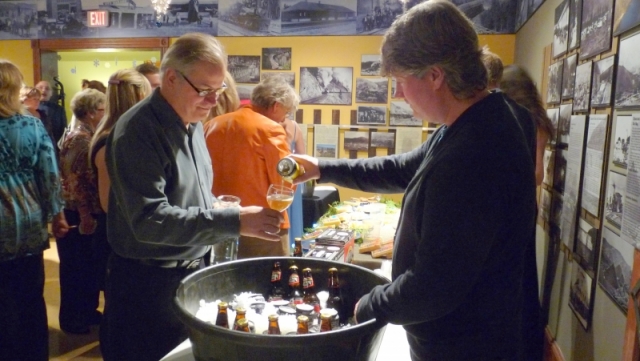Gaming grants returning to Boundary
It’s been a tough financial year for Boundary non-profit organizations.
But there may be some hope at the end of March now the provincial government announced it will be reinstating the community gaming grants to groups who support adult arts and sports, animal welfare and environmental concerns.
“Through an open public engagement process, we heard from more than 1,700 British Columbians about what we can do to improve our gaming grant system,” said Premier Christy Clark in a news release sent out last month. “We listened and we’re taking action. Community gaming grants will be made available to more groups so they can focus on what they do best – delivering essential services to B.C. families.”
In 2010 the government combined the former bingo affiliation and direct access grants with the single community gaming grants program. Some of the changes to that new program included eliminating some organizations from qualifying for the funds.
In July 2011 the Premier appointed Skip Triplett, former Kwantlen Polytechnic University president, to conduct a review on how to improve the governance and funding formula for the grants. The fund is $135 million.
In the Boundary, that money was mainly used to fund the operational needs of local organizations like the Grand Forks and District Art and Heritage Centre, the Christina Lake Stewardship Society (CLSS) and the Phoenix Mountain Alpine Ski Society (PMASS).
Future funding still uncertain until March
Community groups are still unsure of what this new announcement may mean for them.
The funds won’t be awarded until the end of March. Meanwhile, the non-profits know they can’t rely on what hasn’t been given to them and are scrambling to find other ways to make up their shortfalls.
Times have been tough for the Grand Forks and District Art and Heritage Centre ( www.gallery2grandforks.ca) since the government took away their community gaming grant. The gallery relied on a $30,000 grant toward their operating costs. They’d been getting that grant for eight years.
“That was a big loss,” said Ted Fogg, director and curator of the Grand Forks and District Art and Heritage Centre of the $30,000 grant. “And that money has not come back, only project specific funding (is available).”
He said the loss cost the gallery one full-time employee and “has limited what we can do.”
What has helped is that the art gallery has two funding venues to apply under — art and heritage. Under their heritage designation they have received funding to hire a part-time outreach coordinator to facilitate heritage related projects in the community for one year.
To help alleviate the operational shortfall, the centre has gotten creative with their fundraising efforts like the upcoming Masquerade Ball on Saturday, March 10.
Since loosing their important grant funding the Christina Lake Stewardship Society www.lakesteward.ca has also had to explore other ways to find money for their operating costs.
“This year has been pretty tough,” said Brenda LaCroix, stewardship coordinator for the CLSS.
“Gaming money is our constant funding. It was used for staff time, like an assistant in the summer, rent, phone, internet and if anything breaks down…It is a vital part in keeping us going and keeping the pressure off.”
LaCroix has been busily applying for project-specific funding. In December she did receive some funds toward educational projects, which will be the society’s focus this season. But education is only one component. They also inventory and monitor the Christina Lake watershed and implement the Christina Lake Watershed Management Plan, now in it’s fifth year.
“I try every few years for a mega grant that will help us over one or two years to get our data done,” said LaCroix.
The Phoenix Mountain Alpine Ski Society www.skiphoenix.com, as you can read in another article on the Boundary Sentinel at https://boundarysentinel.com/news/phoenix-ski-hill-fund-or-fold-17140, has lost $47,000 in funding from their loss of the communty gaming grants.
That money helped bridge the gap between the operational costs of the facility and the actual income it created. Since they’ve lost that funding, they’ve been asking local governments for a long-time financial commitment to keep them going.
“To have to apply for a grant every year to take care of our shortfall it is really hard to plan for,” said PMASS president Don Colclough. “We can’t borrow money. So we’re after stable funding from the regional district. We believe we are no different than the pool or arena. We are a community hill.”
All three societys have applied for funding through the grant process and eagerly await a reply in March.
The Province will also increase support for other organizations that have experienced funding reductions in the past three years, including those responsible for fairs, festivals, youth arts and culture, community service, the B.C. Senior Games and community education organizations
To view Skip Triplett’s full review visit www.communitygaminggrantreview.gov.bc.ca






















